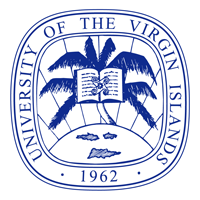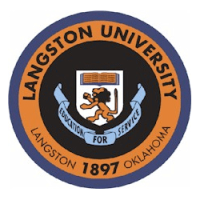![]() Here is this week’s news of grants or gifts to historically Black colleges and universities or for programs of particular interest to African Americans in higher education.
Here is this week’s news of grants or gifts to historically Black colleges and universities or for programs of particular interest to African Americans in higher education.
 Martha Escobar, an associate professor of psychology at Oakland University, has been awarded a $1.2 million grant from The National Science Project, which will support a three-year research project on preparing African American girls from rural areas to successfully complete an Advanced Placement (AP) computer science course. The project will consist of designing year-long workshops and an online peer community for 120 Black girls from rural Alabama school districts. Dr. Escobar states that “the rationale behind this program is that young women, especially from minority groups, are severely underrepresented in computer science.” In 2013, only 20 percent of AP computer science test takers were girls, and less than one percent were Black girls. Dr. Escobar holds a bachelor’s degree in psychology from the University of Deusto in Spain, and a master’s degree and Ph.D. in cognitive and behavioral science from Binghamton University in New York.
Martha Escobar, an associate professor of psychology at Oakland University, has been awarded a $1.2 million grant from The National Science Project, which will support a three-year research project on preparing African American girls from rural areas to successfully complete an Advanced Placement (AP) computer science course. The project will consist of designing year-long workshops and an online peer community for 120 Black girls from rural Alabama school districts. Dr. Escobar states that “the rationale behind this program is that young women, especially from minority groups, are severely underrepresented in computer science.” In 2013, only 20 percent of AP computer science test takers were girls, and less than one percent were Black girls. Dr. Escobar holds a bachelor’s degree in psychology from the University of Deusto in Spain, and a master’s degree and Ph.D. in cognitive and behavioral science from Binghamton University in New York.
 The Office of the Vice President for Diversity, Equity, and Multicultural Affairs at Indiana University Bloomington has received a gift of $1.5 million to establish the Johnson Chair for Diversity and Leadership. James C. Wimbush, vice president for diversity, equity, and multicultural affairs and dean of the University Graduate School has been appointed to the new position. The donation will support Dean Wimbush’s leadership in diversity efforts at Indiana including developing scholarships and inclusive programming that creates a welcoming campus environment for all students. The gift was made by Indiana alumnus Lacy M. Johnson, a partner at Ice Miller LLP in Indianapolis, and his wife, Patricia. Johnson is a founding member of the Black Philanthropy Circle at Indiana University which supports Black students, faculty, and staff through providing scholarships, academic resources, and assistance with degree attainment.
The Office of the Vice President for Diversity, Equity, and Multicultural Affairs at Indiana University Bloomington has received a gift of $1.5 million to establish the Johnson Chair for Diversity and Leadership. James C. Wimbush, vice president for diversity, equity, and multicultural affairs and dean of the University Graduate School has been appointed to the new position. The donation will support Dean Wimbush’s leadership in diversity efforts at Indiana including developing scholarships and inclusive programming that creates a welcoming campus environment for all students. The gift was made by Indiana alumnus Lacy M. Johnson, a partner at Ice Miller LLP in Indianapolis, and his wife, Patricia. Johnson is a founding member of the Black Philanthropy Circle at Indiana University which supports Black students, faculty, and staff through providing scholarships, academic resources, and assistance with degree attainment.
 The Department of Health Science-Multicultural and Community Affairs at Creighton University in Omaha, Nebraska, has received a $3 million grant to support their Pipeline to Success Program, which aids disadvantaged students from Nebraska complete the necessary education and training to become health professionals. The program aims to increase diversity in the healthcare workforce by improving recruitment, retention, and graduation rates in the health field. Sade Kosoko-Lasaki, associate vice provost for health sciences and professor of ophthalmology, is the principal investigator on the grant. She believes the grant “will help Creighton University to continue on its mission of increasing the racial minority representation in its health sciences schools.”
The Department of Health Science-Multicultural and Community Affairs at Creighton University in Omaha, Nebraska, has received a $3 million grant to support their Pipeline to Success Program, which aids disadvantaged students from Nebraska complete the necessary education and training to become health professionals. The program aims to increase diversity in the healthcare workforce by improving recruitment, retention, and graduation rates in the health field. Sade Kosoko-Lasaki, associate vice provost for health sciences and professor of ophthalmology, is the principal investigator on the grant. She believes the grant “will help Creighton University to continue on its mission of increasing the racial minority representation in its health sciences schools.”
 Fisk University, the historically Black educational institution in Nashville, Tennessee,has received a $3 million grant from philanthropist Roland G. Parrish to fund the construction of the new Roland G. Parrish Center for Career Planning and Development. The new building will include classrooms, meeting rooms, and innovation spaces. The construction coincides with Fisk University President Rome’s initiative to prepare Fisk students to become business executives and community leaders. Parrish is currently CEO of Parrish Restaurants, Ltd., the seventh largest minority-owned business in northern Texas. He is committed to giving back to his community, especially when it comes to education and youth welfare, and hopes that his gift will inspire others to get more engaged with the university. He holds a bachelor’s degree and MBA from the Krannert School of Business at Purdue University in West Lafayette, Indiana.
Fisk University, the historically Black educational institution in Nashville, Tennessee,has received a $3 million grant from philanthropist Roland G. Parrish to fund the construction of the new Roland G. Parrish Center for Career Planning and Development. The new building will include classrooms, meeting rooms, and innovation spaces. The construction coincides with Fisk University President Rome’s initiative to prepare Fisk students to become business executives and community leaders. Parrish is currently CEO of Parrish Restaurants, Ltd., the seventh largest minority-owned business in northern Texas. He is committed to giving back to his community, especially when it comes to education and youth welfare, and hopes that his gift will inspire others to get more engaged with the university. He holds a bachelor’s degree and MBA from the Krannert School of Business at Purdue University in West Lafayette, Indiana.
 The National Science Foundation has awarded a $9 million grant to the Center for the Advancement of STEM Leadership to support the center’s efforts to enhance diversity and inclusion in United States higher education. The center will partner with four higher education institutions that will each play a different role in the project. The University of the Virgin Islands will lead the research component, which will focus on studying the leadership styles associated with HBCUs’ impressive record of graduating African Americans in STEM and preparing African American students for doctoral study in STEM fields. Based on their findings, North Carolina A&T State University and Fielding Graduate University will implement leadership development programs to increase diversity in STEM academic leadership. Finally, the Association of American Colleges and Universities (AAC&U) will lead the outreach efforts and inform their 1,400 member institutions of the research findings. AAC&U President Dr. Lynn Pasquerella stated that the association understands “that HBCUs are vital to sustaining our competitive edge in scientific discovery and innovation.”
The National Science Foundation has awarded a $9 million grant to the Center for the Advancement of STEM Leadership to support the center’s efforts to enhance diversity and inclusion in United States higher education. The center will partner with four higher education institutions that will each play a different role in the project. The University of the Virgin Islands will lead the research component, which will focus on studying the leadership styles associated with HBCUs’ impressive record of graduating African Americans in STEM and preparing African American students for doctoral study in STEM fields. Based on their findings, North Carolina A&T State University and Fielding Graduate University will implement leadership development programs to increase diversity in STEM academic leadership. Finally, the Association of American Colleges and Universities (AAC&U) will lead the outreach efforts and inform their 1,400 member institutions of the research findings. AAC&U President Dr. Lynn Pasquerella stated that the association understands “that HBCUs are vital to sustaining our competitive edge in scientific discovery and innovation.”
 The Yale University School of Management has received funding from the Commonwealth Fund to launch the Commonwealth Fund Fellowship in Minority Health Leadership at Yale University, a program which gives healthcare professionals leadership skills and a deeper understanding of the inequities in United States healthcare system. The program will fund three fellows each year who will be health practitioners committed to improving healthcare access and outcomes for disadvantaged groups. The fellows will complete the 22-month MBA executive degree program and benefit from professional mentoring, immersion trips, and hands-on projects that focus on minority health. Commonwealth Fund president Dr. David Blumenthal stated that “we cannot fully address our health system’s inequities if its leadership does not include people from the communities that have long experienced them.”
The Yale University School of Management has received funding from the Commonwealth Fund to launch the Commonwealth Fund Fellowship in Minority Health Leadership at Yale University, a program which gives healthcare professionals leadership skills and a deeper understanding of the inequities in United States healthcare system. The program will fund three fellows each year who will be health practitioners committed to improving healthcare access and outcomes for disadvantaged groups. The fellows will complete the 22-month MBA executive degree program and benefit from professional mentoring, immersion trips, and hands-on projects that focus on minority health. Commonwealth Fund president Dr. David Blumenthal stated that “we cannot fully address our health system’s inequities if its leadership does not include people from the communities that have long experienced them.”

The North Carolina Central University’s Biomanufacturing Research Institute and Technology Enterprise (BRITE) program has received a $350,000 grant from the Golden LEAF Foundation to provide biotech and pharmaceutical-based internships in rural counties of North Carolina. The grant will support the historically Black university in contributing well-educated and highly trained diverse graduates to work in biopharmacy and life science professions in rural and lower-income areas.
 Texas Southern University’s College of Pharmacy has received a five-year $5.1 million grant from the Cancer Prevention and Research Institute of Texas. The university will conduct research on pharmaceutical products before they are tested on human subjects. This will include studying chemical properties, determining how the drug and human body will react to each other, and estimating safe dosages. Lead investigator and professor of pharmacy Huan Xi believes that this grant is a great opportunity for more diverse students to get involved in pharmacy. Dr. Xi said that the grant “will allow TSU to provide training to the next generation of cancer investigators.”
Texas Southern University’s College of Pharmacy has received a five-year $5.1 million grant from the Cancer Prevention and Research Institute of Texas. The university will conduct research on pharmaceutical products before they are tested on human subjects. This will include studying chemical properties, determining how the drug and human body will react to each other, and estimating safe dosages. Lead investigator and professor of pharmacy Huan Xi believes that this grant is a great opportunity for more diverse students to get involved in pharmacy. Dr. Xi said that the grant “will allow TSU to provide training to the next generation of cancer investigators.”
 Researchers at the University of Tennessee Health Science Center in Memphis have been awarded a $1.1 million grant to study the social, clinical, and genetic factors that affect one’s risk for developing sever disability after having a subarachnoid hemorrhage, a severe form of a stroke. Additionally, they hope to find some insight on the disparities between Caucasian and African American patients of this condition. According to lead investigator, Dr. Ansley Grimes Stanfill, African Americans affected by this kind of stroke “are affected at a younger age (often under 40 years olds), and are at a greater risk for severe disability compared to Caucasians.” She believes the research will have a significant impact on decreasing this racial gap.
Researchers at the University of Tennessee Health Science Center in Memphis have been awarded a $1.1 million grant to study the social, clinical, and genetic factors that affect one’s risk for developing sever disability after having a subarachnoid hemorrhage, a severe form of a stroke. Additionally, they hope to find some insight on the disparities between Caucasian and African American patients of this condition. According to lead investigator, Dr. Ansley Grimes Stanfill, African Americans affected by this kind of stroke “are affected at a younger age (often under 40 years olds), and are at a greater risk for severe disability compared to Caucasians.” She believes the research will have a significant impact on decreasing this racial gap.
 The University of Delaware has received a $5 million gift from the Board of Trustees chairman, John R. Cochran III, and his wife, Patricia, to support faculty diversity initiatives and fund renovations for Delaware Stadium. Two million dollars will fund the athletic stadium project while the other $3 million will establish the John and Patricia Cochran Scholars Fund. This fund will be used to recruit, develop retain, and promote a diverse faculty and to support their successful academic careers.
The University of Delaware has received a $5 million gift from the Board of Trustees chairman, John R. Cochran III, and his wife, Patricia, to support faculty diversity initiatives and fund renovations for Delaware Stadium. Two million dollars will fund the athletic stadium project while the other $3 million will establish the John and Patricia Cochran Scholars Fund. This fund will be used to recruit, develop retain, and promote a diverse faculty and to support their successful academic careers.
 Langston University, a historically Black university in Oklahoma has received a grant for a new summer gardening STEM program that will allow Tulsa-area students to get hands-on experience growing their own vegetation. National Geographic reported that American farmers are 17 years older than the average American worker.The program aims to get more young students interested in sustainable agriculture. It also will introduce hydroponic systems in some of their classrooms. These systems allow plant roots to come in contact with a water-based, nutrient rich solution, while still having access to oxygen, which is a much faster and more convenient method of growing plants than traditional farming.
Langston University, a historically Black university in Oklahoma has received a grant for a new summer gardening STEM program that will allow Tulsa-area students to get hands-on experience growing their own vegetation. National Geographic reported that American farmers are 17 years older than the average American worker.The program aims to get more young students interested in sustainable agriculture. It also will introduce hydroponic systems in some of their classrooms. These systems allow plant roots to come in contact with a water-based, nutrient rich solution, while still having access to oxygen, which is a much faster and more convenient method of growing plants than traditional farming.
 Noreen and Ned Zimmerman have gifted $200,000 to Prairie View A&M University to support the Fannie and Issac Stubblefield Endowed Scholarship Fund. When Prairie View president Ruth Simmons was leading Smith College in Massachusetts from 1995 to 2001, the Zimmermans were inspired by her efforts to increase diversity at the institution. They decided to show their high regard for her and donate to her current institution, Prairie View. President Simmons stated that their “gift is an extraordinary act of altruism and will make an invaluable difference in the lives of our students who are worthy of significant support such as this.”
Noreen and Ned Zimmerman have gifted $200,000 to Prairie View A&M University to support the Fannie and Issac Stubblefield Endowed Scholarship Fund. When Prairie View president Ruth Simmons was leading Smith College in Massachusetts from 1995 to 2001, the Zimmermans were inspired by her efforts to increase diversity at the institution. They decided to show their high regard for her and donate to her current institution, Prairie View. President Simmons stated that their “gift is an extraordinary act of altruism and will make an invaluable difference in the lives of our students who are worthy of significant support such as this.”
 Spelman College, Morehouse College, and Clark Atlanta University have received a gift from the Atlanta Hawks in honor of Grant Hill, vice chair and part owner of the Hawks who was recently inducted into the Naismith Memorial Basketball Hall of Fame. The team’s donation will support 33 students with scholarships, the same number as Hill’s basketball jersey.
Spelman College, Morehouse College, and Clark Atlanta University have received a gift from the Atlanta Hawks in honor of Grant Hill, vice chair and part owner of the Hawks who was recently inducted into the Naismith Memorial Basketball Hall of Fame. The team’s donation will support 33 students with scholarships, the same number as Hill’s basketball jersey.
 Cynthia Jones has pledged to help educate future Wright State University students through a bequest in her estate. The university will receive her home upon her death, which will fund a scholarship for students with financial need who are either African American or have a disability. She stated that she “feels at peace knowing that there will be students for years to come that will benefit from this one decision that she]made.” Jones earned her master’s degree in teacher education from Wright State University.
Cynthia Jones has pledged to help educate future Wright State University students through a bequest in her estate. The university will receive her home upon her death, which will fund a scholarship for students with financial need who are either African American or have a disability. She stated that she “feels at peace knowing that there will be students for years to come that will benefit from this one decision that she]made.” Jones earned her master’s degree in teacher education from Wright State University.










